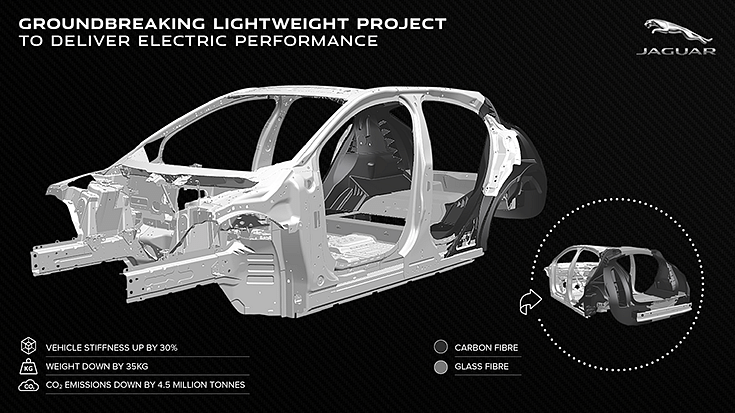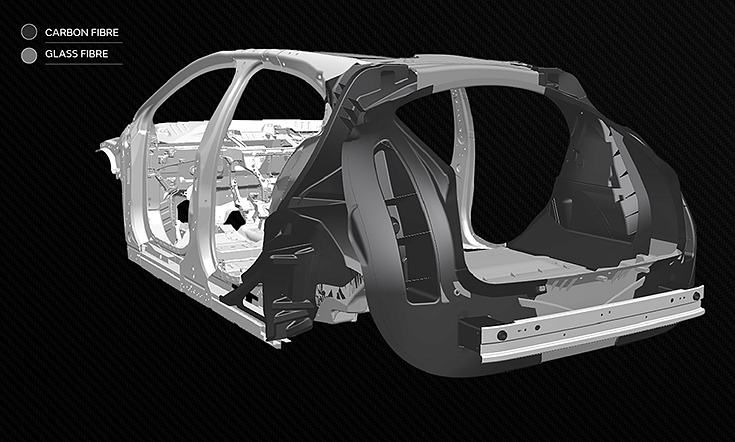Jaguar Land Rover to use advanced lightweight composites for future EVs
Tucana consortium will allow Jaguar Land Rover to make future EVs go further using advanced composites such as carbon fibre
Jaguar Land Rover is preparing for future electric vehicles with advanced lightweight composite research that will help deliver increased range, greater performance and a more dynamic drive.
The Tucana project is a four-year programme to make the UK a world leader in low-carbon technology, helping prevent 4.5 million tonnes of CO2 emissions between 2023 and 2032 by accelerating mainstream use of electric vehicles and making vehicles lighter to both decrease tailpipe emissions and reduce energy consumption of electrified powertrains.
The research will allow Jaguar Land Rover to develop lightweight vehicle and powertrain structures by replacing aluminium and steel with composites capable of handling the increased torque generated by high-performance batteries, while improving efficiency and reducing CO2 impact.

Jaguar Land Rover aims to increase vehicle stiffness by 30 per cent, cut weight by 35kg and further refine the crash safety structure through the strategic use of tailored composites, such as carbon fibre. Reducing the vehicle body weight will allow the fitting of larger batteries with increased range – without impacting CO2 emissions.
Advanced composites offer significant reductions in vehicle weight, and by 2022, Jaguar Land Rover expects to have developed a fleet of prototype Tucana test vehicles.
The consortium, led by Jaguar Land Rover, brings together world-leading academic and industry partners including the Warwick Manufacturing Group (WMG), Expert Tooling & Automation, Broetje-Automation UK, Toray International UK, CCP Gransden and The Centre for Modelling & Simulation (CFMS).
Marcus Henry, Research Manager at Jaguar Land Rover, said: “The development of new lightweight body structures to complement the latest zero-emissions powertrains will be key as the electrification of our vehicle range continues. This project will allow the true environmental credentials of electric vehicles to be realised by enabling wider adoption of the technology and will propel Jaguar Land Rover and the UK supply chain into a world-leading position in low-carbon technology.”
Ian Risk, Chief Technology Officer at CFMS, said: “Tucana shows how new technology development can be optimised and accelerated with digital engineering. Using new digital design, development and manufacturing tools helps to deliver emissions reduction faster, so the UK economy can reach zero emissions quicker.”

RELATED ARTICLES
Autoliv Plans JV for Advanced Safety Electronics With China’s HSAE
The new joint venture, which is to be located strategically near Shanghai and close to several existing Autoliv sites in...
JLR to Restart Production Over a Month After September Hacking
Manufacturing operations at the Tata Group-owned British luxury car and SUV manufacturer were shut down following a cybe...
BYD UK Sales Jump 880% in September to 11,271 units
Sales record sets the UK apart as the largest international market for BYD outside of China for the first time. The Seal...






 By Autocar Professional Bureau
By Autocar Professional Bureau
 30 Jan 2021
30 Jan 2021
 13937 Views
13937 Views








 Ajit Dalvi
Ajit Dalvi




